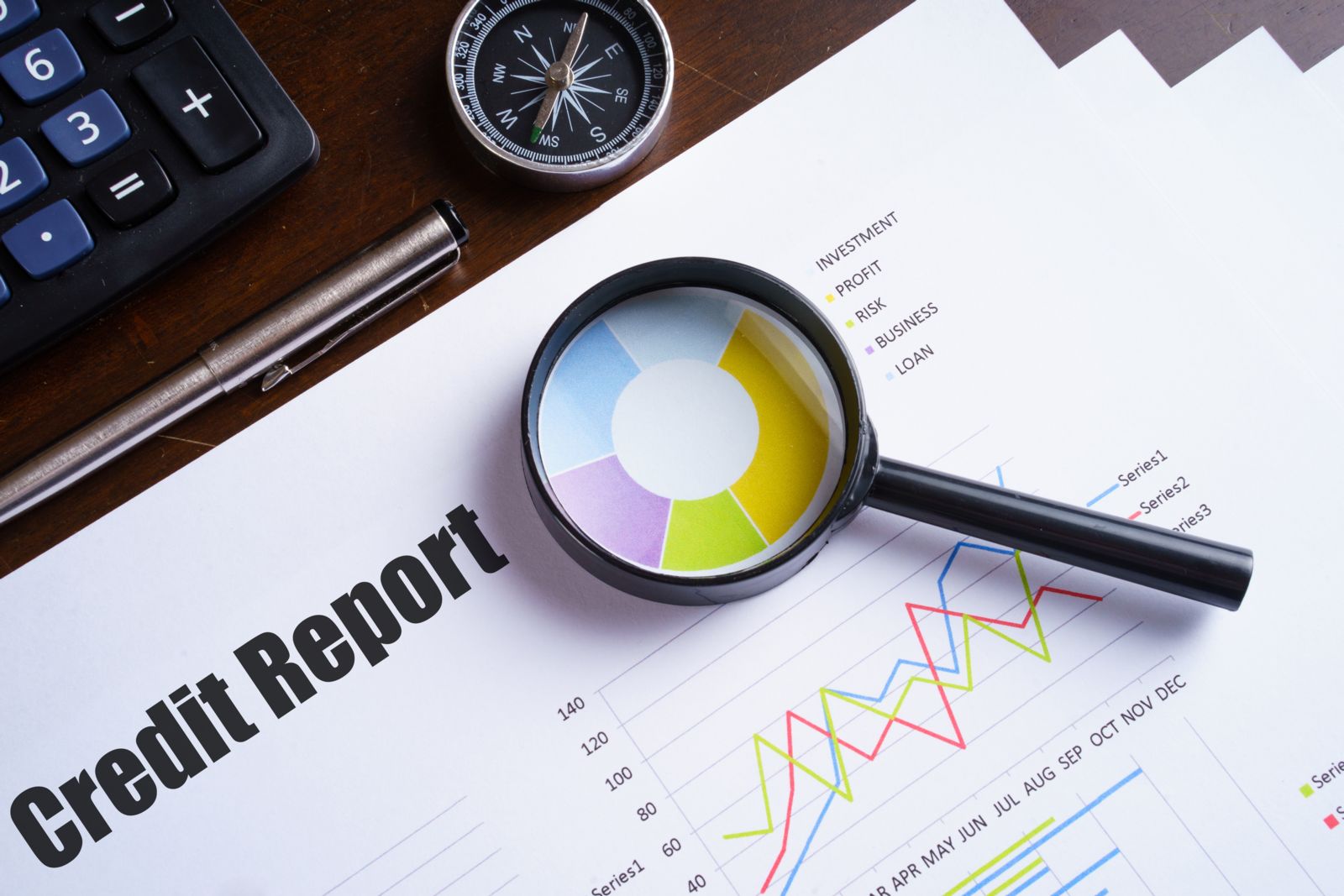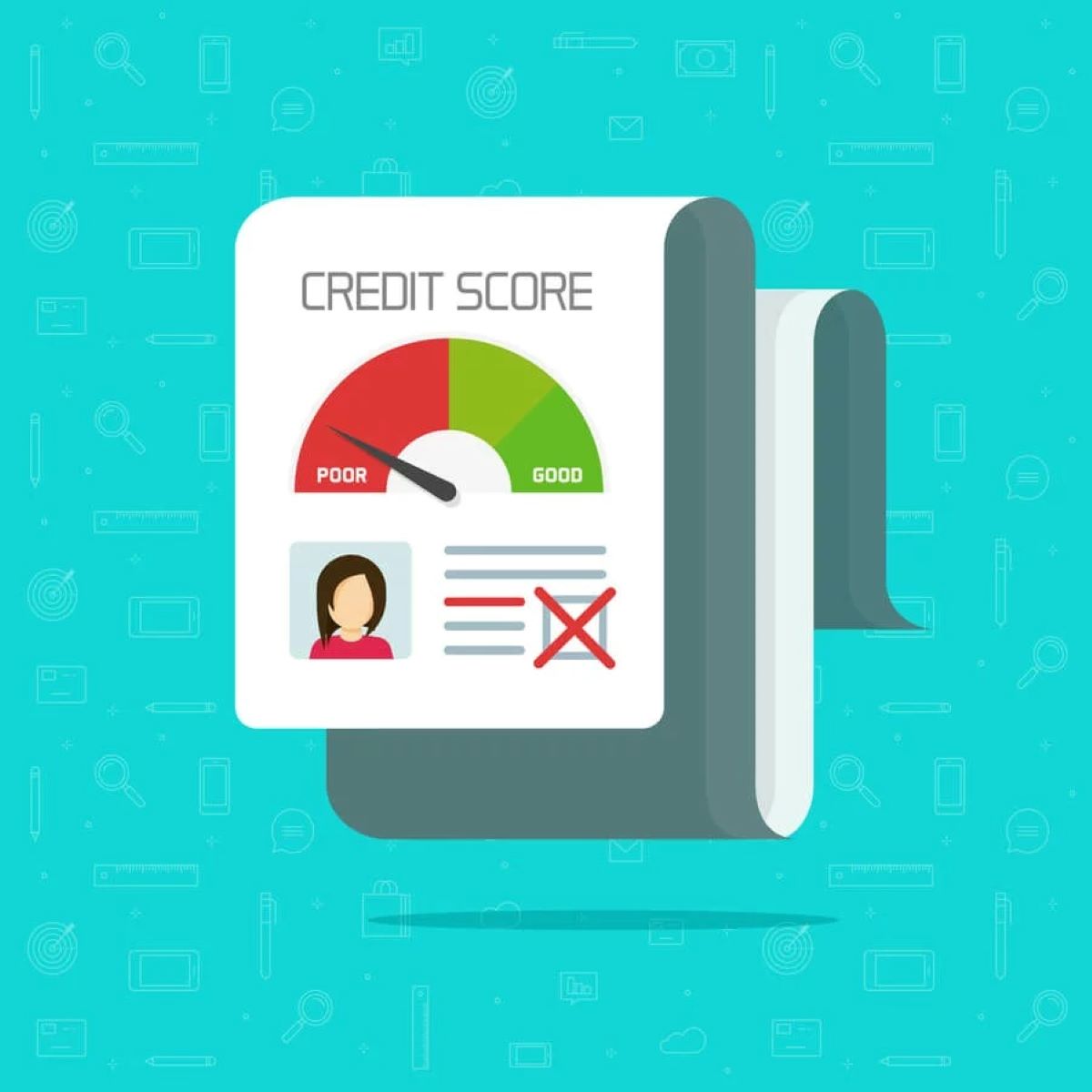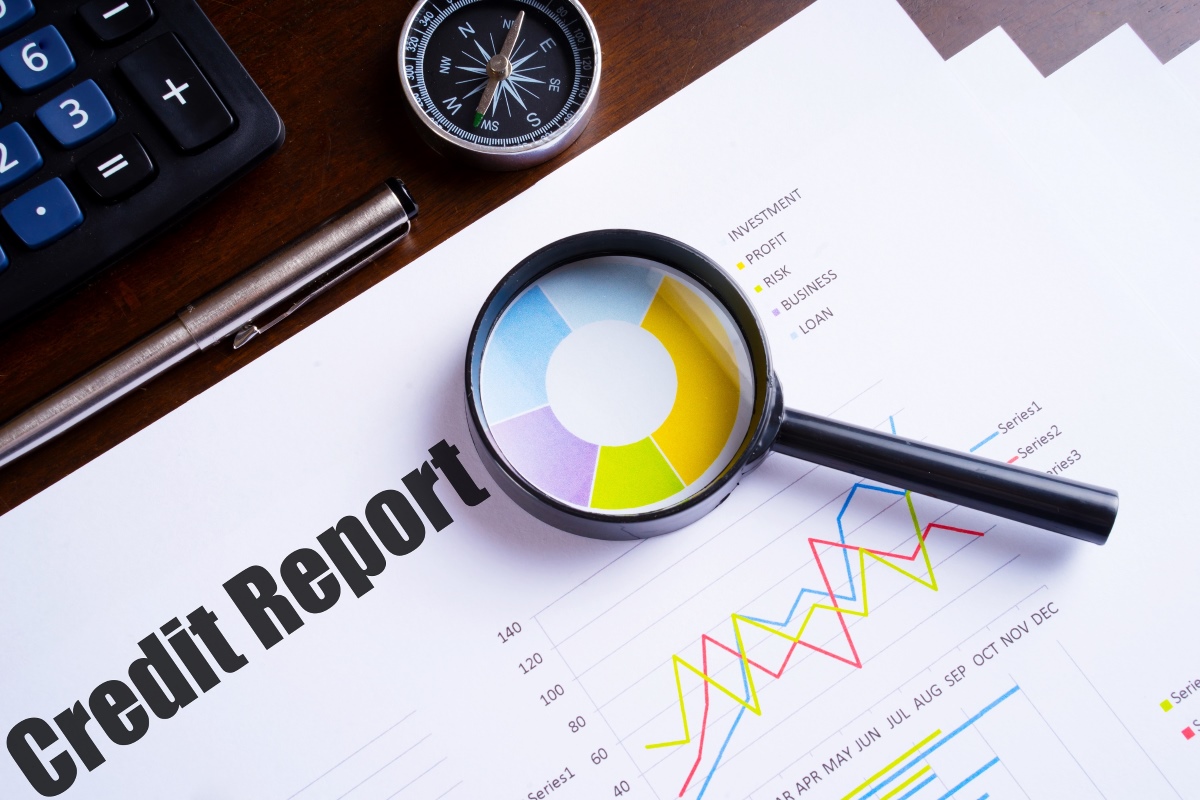Home>Finance>Chase Ran A New Credit Inquiry On Me That I Did Not Authorize. Who Do I Contact?


Finance
Chase Ran A New Credit Inquiry On Me That I Did Not Authorize. Who Do I Contact?
Published: March 5, 2024
If Chase ran an unauthorized credit inquiry, contact the credit bureaus to dispute it and protect your financial standing. Get expert advice on handling unauthorized credit inquiries.
(Many of the links in this article redirect to a specific reviewed product. Your purchase of these products through affiliate links helps to generate commission for LiveWell, at no extra cost. Learn more)
Table of Contents
- Understanding the Impact of Unauthorized Credit Inquiries
- Recognizing the Significance of Unauthorized Credit Inquiries
- Navigating the Response Process Effectively
- Initiating Direct Communication for Resolution
- Seeking Resolution and Accountability
- Seeking Recourse and Advocacy
- Exercising Legal Recourse for Unauthorized Credit Inquiries
- Navigating Unauthorized Credit Inquiries with Resilience and Resolve
Introduction
Understanding the Impact of Unauthorized Credit Inquiries
When it comes to managing your financial well-being, your credit report plays a pivotal role. It serves as a comprehensive record of your credit history, including your borrowing and repayment activities. One crucial aspect of your credit report is the list of credit inquiries, which reflects instances when a third party has accessed your credit report.
Authorized credit inquiries typically occur when you apply for credit, such as a loan, credit card, or mortgage. However, unauthorized credit inquiries can be a cause for concern, as they may indicate potential fraudulent activity or unauthorized access to your personal information. It’s essential to address unauthorized credit inquiries promptly to safeguard your financial security and creditworthiness.
In this article, we will explore the necessary steps to take when you discover an unauthorized credit inquiry on your report. From understanding the implications of unauthorized inquiries to taking proactive measures to rectify the situation, we will provide comprehensive guidance to help you navigate this challenging scenario. Whether it’s contacting the credit bureau, reaching out to the institution responsible for the unauthorized inquiry, or seeking recourse through consumer protection agencies, we’ve got you covered.
Understanding the gravity of unauthorized credit inquiries and knowing how to respond effectively is crucial for protecting your financial standing. By empowering yourself with the knowledge and resources outlined in this article, you can take proactive steps to address unauthorized credit inquiries and mitigate any potential negative impact on your credit profile.
Understanding Unauthorized Credit Inquiries
Recognizing the Significance of Unauthorized Credit Inquiries
Unauthorized credit inquiries can have far-reaching implications for your financial well-being. When a creditor, lender, or another authorized party accesses your credit report without your consent, it can signal potential identity theft, fraud, or unauthorized use of your personal information. These unauthorized inquiries may stem from attempts to open fraudulent accounts, obtain credit in your name, or engage in other malicious activities that can jeopardize your financial stability.
It’s important to distinguish between hard and soft inquiries, as this differentiation can impact your credit score and the severity of the unauthorized access. Hard inquiries typically occur when you apply for credit, such as a mortgage, auto loan, or credit card. These inquiries can affect your credit score and may require your explicit consent. On the other hand, soft inquiries, which are often associated with pre-approved offers or background checks, do not impact your credit score and are typically permissible without your explicit authorization.
When unauthorized credit inquiries appear on your credit report, it’s crucial to assess the potential risks and act swiftly to address the situation. By recognizing the significance of unauthorized inquiries and their potential implications, you can take proactive measures to protect your financial integrity and minimize any adverse effects on your credit standing.
As we delve deeper into the steps for addressing unauthorized credit inquiries, it’s essential to grasp the underlying impact of these unauthorized accesses and the urgency of mitigating their potential repercussions. By gaining a comprehensive understanding of unauthorized credit inquiries, you can equip yourself with the knowledge needed to navigate this challenging scenario and safeguard your financial well-being.
Steps to Take When You Discover an Unauthorized Credit Inquiry
Navigating the Response Process Effectively
Discovering an unauthorized credit inquiry on your credit report can be unsettling, but taking prompt and strategic action is crucial for mitigating any potential negative impact. When faced with this situation, there are several essential steps to consider, each aimed at addressing the unauthorized inquiry and safeguarding your financial standing.
- Review Your Credit Report: Start by obtaining a copy of your credit report from all three major credit bureaus – Equifax, Experian, and TransUnion. Carefully review each report to identify the unauthorized inquiry and any associated details. This comprehensive assessment will provide a clear understanding of the extent of the unauthorized access and guide your subsequent actions.
- Initiate a Dispute: If you identify an unauthorized credit inquiry, promptly initiate a dispute with the respective credit bureau. This process typically involves submitting a formal dispute letter or filing an online dispute, clearly indicating the unauthorized nature of the inquiry and providing any supporting evidence or documentation.
- Place a Fraud Alert or Credit Freeze: Consider placing a fraud alert or credit freeze on your credit file to add an extra layer of protection. A fraud alert notifies creditors to verify your identity before extending credit, while a credit freeze restricts access to your credit report, making it more challenging for unauthorized inquiries to occur.
- Monitor Your Accounts: Vigilantly monitor your financial accounts, credit card statements, and credit reports for any unusual or unauthorized activity. Promptly report any suspicious transactions or discrepancies to your financial institutions and credit bureaus.
- Document Your Communications: Keep detailed records of all communications, including correspondence with credit bureaus, financial institutions, and any other relevant parties. Maintaining thorough documentation can be invaluable should you need to escalate the matter or pursue legal recourse.
By diligently following these steps, you can proactively address unauthorized credit inquiries and fortify your defenses against potential fraudulent activities. The timely and methodical execution of these measures is instrumental in safeguarding your financial well-being and mitigating the impact of unauthorized credit inquiries.
Contacting the Credit Bureau
Initiating Direct Communication for Resolution
When faced with an unauthorized credit inquiry, initiating direct communication with the credit bureau is a pivotal step in rectifying the issue and protecting your credit standing. The credit bureau, whether it be Equifax, Experian, or TransUnion, serves as the custodian of your credit report and plays a key role in addressing unauthorized inquiries.
Upon discovering an unauthorized credit inquiry on your credit report, promptly reaching out to the relevant credit bureau is essential. Here are the key steps to consider when contacting the credit bureau:
- File a Formal Dispute: Initiate the dispute process by filing a formal dispute with the credit bureau that reflects the unauthorized nature of the inquiry. Provide specific details regarding the unauthorized access and any supporting documentation that substantiates your claim. This formal dispute serves as a crucial mechanism for challenging the accuracy and legitimacy of the unauthorized inquiry.
- Request an Investigation: Request that the credit bureau conduct a thorough investigation into the unauthorized inquiry. Emphasize the importance of expeditiously resolving the matter to prevent any adverse impact on your credit standing. The credit bureau is obligated to investigate the disputed inquiry and provide a resolution within a reasonable timeframe.
- Monitor the Dispute Process: Stay proactive in monitoring the progress of the dispute process with the credit bureau. Regularly follow up on the status of the investigation and ensure that all necessary steps are being taken to address the unauthorized inquiry effectively. Timely and persistent engagement can expedite the resolution process.
- Review the Outcome: Upon completion of the investigation, carefully review the outcome provided by the credit bureau. If the unauthorized inquiry is deemed invalid, ensure that it is promptly removed from your credit report to prevent any lingering repercussions.
Effectively engaging with the credit bureau is paramount in rectifying unauthorized credit inquiries and preserving the accuracy and integrity of your credit report. By proactively pursuing resolution through direct communication with the credit bureau, you can assert your rights and protect your creditworthiness from the impact of unauthorized inquiries.
Contacting Chase
Seeking Resolution and Accountability
Upon discovering an unauthorized credit inquiry attributed to Chase, it is imperative to initiate direct communication with the institution to address the unauthorized access and seek resolution. Contacting Chase to report the unauthorized inquiry involves specific steps aimed at asserting your rights and holding the institution accountable for any unauthorized access to your credit report.
Here are the key considerations when reaching out to Chase in response to an unauthorized credit inquiry:
- Initiate Direct Contact: Begin by contacting Chase’s customer service or the designated department responsible for addressing credit report inquiries. Clearly communicate the unauthorized nature of the inquiry and provide relevant details, such as the date of the inquiry and any associated reference numbers, to facilitate a focused investigation.
- Request Investigation and Resolution: Request that Chase conduct a thorough investigation into the unauthorized credit inquiry. Emphasize the importance of expeditiously resolving the matter to mitigate any potential impact on your credit standing. Seek a clear timeline for the investigation process and the subsequent resolution.
- Document Your Communication: Maintain detailed records of all communication with Chase, including the names of representatives spoken to, dates and times of contact, and any relevant reference numbers or case identifiers. This documentation serves as a crucial record of your efforts to address the unauthorized inquiry.
- Follow Up Persistently: Stay proactive in following up with Chase to monitor the progress of the investigation and ensure that the unauthorized inquiry is being addressed effectively. Regular communication and persistent follow-up can underscore the importance of a timely and satisfactory resolution.
- Seek Confirmation of Resolution: Upon completion of the investigation, request written confirmation from Chase regarding the resolution of the unauthorized inquiry. Verify that the unauthorized inquiry has been expunged from your credit report to prevent any lingering impact on your credit standing.
By proactively engaging with Chase and holding the institution accountable for unauthorized credit inquiries, you can assert your rights as a consumer and safeguard the accuracy of your credit report. Prompt and persistent communication with Chase is instrumental in seeking resolution and ensuring that any unauthorized inquiries are effectively addressed.
Filing a Complaint with Consumer Protection Agencies
Seeking Recourse and Advocacy
When confronted with unauthorized credit inquiries and facing challenges in resolving the issue directly with the credit bureau or the institution responsible, filing a complaint with consumer protection agencies can provide an additional avenue for seeking recourse and advocacy. Consumer protection agencies play a pivotal role in safeguarding consumers’ rights and addressing issues related to unauthorized access and potential identity theft.
Here are the essential steps to consider when filing a complaint with consumer protection agencies in response to unauthorized credit inquiries:
- Research Reputable Agencies: Identify reputable consumer protection agencies, such as the Consumer Financial Protection Bureau (CFPB) and the Federal Trade Commission (FTC), known for their advocacy and oversight in matters concerning consumer rights and financial protection.
- Submit a Detailed Complaint: Prepare a comprehensive complaint detailing the unauthorized credit inquiry, including relevant dates, the institution responsible, and any supporting documentation. Clearly articulate the impact of the unauthorized inquiry on your financial well-being and emphasize the urgency of seeking resolution.
- Request Investigation and Intervention: Request that the consumer protection agency conduct an investigation into the unauthorized credit inquiry and intervene on your behalf to facilitate a swift and satisfactory resolution. Emphasize the potential implications for identity theft and the importance of protecting your credit standing.
- Stay Informed and Engaged: Stay informed about the progress of the agency’s investigation and maintain open communication channels to provide any additional information or documentation as requested. Actively engage with the agency to ensure that your complaint receives due attention and advocacy.
- Seek Guidance and Support: Leverage the resources and guidance offered by consumer protection agencies to navigate the complexities of addressing unauthorized credit inquiries. Utilize available educational materials and support channels to empower yourself with the knowledge needed to protect your rights as a consumer.
Filing a complaint with consumer protection agencies underscores your proactive approach to seeking resolution and advocacy in the face of unauthorized credit inquiries. By leveraging the oversight and intervention capabilities of reputable consumer protection agencies, you can amplify your efforts to address unauthorized inquiries and safeguard your financial integrity.
Taking Legal Action
Exercising Legal Recourse for Unauthorized Credit Inquiries
When traditional avenues for addressing unauthorized credit inquiries yield unsatisfactory outcomes, taking legal action may become a necessary recourse to assert your rights and seek resolution. Legal action in response to unauthorized credit inquiries involves navigating the complexities of consumer protection laws and leveraging legal channels to address potential violations and safeguard your financial standing.
Here are the key considerations when contemplating legal action in response to unauthorized credit inquiries:
- Consultation with Legal Professionals: Seek consultation with legal professionals, such as consumer rights attorneys or legal aid organizations, to assess the viability of pursuing legal action in response to unauthorized credit inquiries. Legal experts can provide valuable insight into relevant consumer protection laws and the potential grounds for legal recourse.
- Evaluation of Consumer Protection Laws: Familiarize yourself with consumer protection laws, such as the Fair Credit Reporting Act (FCRA) and the Consumer Financial Protection Act (CFPA), which govern the permissible practices related to credit reporting and consumer rights. Understanding the protections afforded by these laws is crucial in evaluating potential violations stemming from unauthorized inquiries.
- Documentation and Evidence Gathering: Compile comprehensive documentation and evidence related to the unauthorized credit inquiries, including credit reports, correspondence with credit bureaus and institutions, and any relevant financial records. This evidence serves as a critical foundation for substantiating the unauthorized nature of the inquiries and any resulting harm to your financial well-being.
- Initiation of Legal Proceedings: If warranted by the circumstances and legal assessment, consider initiating legal proceedings against the responsible parties, such as creditors or institutions associated with the unauthorized inquiries. This may involve filing a lawsuit alleging violations of consumer protection laws and seeking remedies for any resulting damages or harm.
- Advocacy for Remedial Actions: Advocate for remedial actions through legal channels, such as seeking the removal of unauthorized inquiries from your credit report, pursuing damages for any financial harm incurred, and compelling the responsible parties to rectify any adverse impact on your credit standing.
By considering legal action as a strategic recourse, you can assert your rights under consumer protection laws and hold accountable any entities that may have engaged in unauthorized credit inquiries. While legal action represents a more assertive approach, it can be instrumental in seeking redress for any harm resulting from unauthorized access to your credit report.
Conclusion
Navigating Unauthorized Credit Inquiries with Resilience and Resolve
Addressing unauthorized credit inquiries demands a blend of vigilance, assertiveness, and strategic navigation of available resources. When faced with the unsettling discovery of unauthorized access to your credit report, it’s essential to respond with resilience and resolve, leveraging the appropriate steps to safeguard your financial integrity and assert your rights as a consumer.
By understanding the implications of unauthorized credit inquiries and recognizing the significance of each proactive step, from contacting the credit bureau and initiating disputes to pursuing legal action if necessary, you empower yourself to navigate this challenging scenario with confidence. Each action taken serves as a testament to your commitment to protecting your financial well-being and upholding the accuracy and integrity of your credit report.
While the discovery of unauthorized credit inquiries may initially evoke concern and uncertainty, it also presents an opportunity to exercise your rights, seek recourse, and fortify your financial defenses. Through persistent engagement with credit bureaus, financial institutions, consumer protection agencies, and potentially legal professionals, you can assertively address unauthorized inquiries and mitigate any adverse impact on your credit standing.
Ultimately, the proactive measures outlined in this guide serve as a compass for charting a course toward resolution and safeguarding your financial standing. By remaining vigilant, informed, and resolute in your pursuit of a satisfactory outcome, you reinforce the resilience of your financial defenses and underscore the importance of protecting your creditworthiness.
As you navigate the complexities of addressing unauthorized credit inquiries, remember that you are not alone in this endeavor. Consumer protection laws, advocacy resources, and legal channels exist to support your efforts and ensure that unauthorized inquiries are effectively addressed. By embracing this comprehensive approach, you can navigate this challenging terrain with resilience and emerge with your financial integrity intact.














